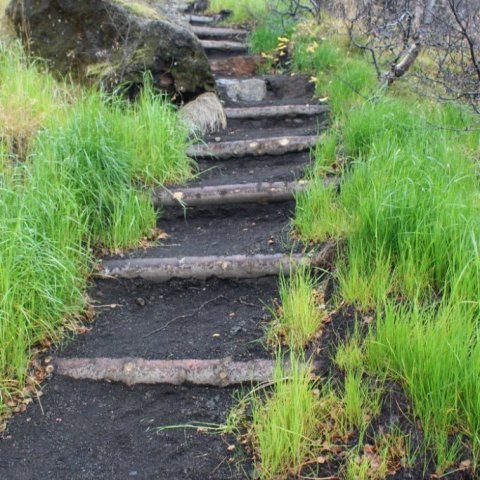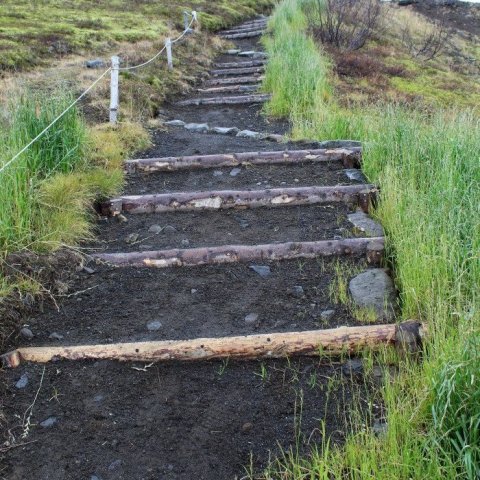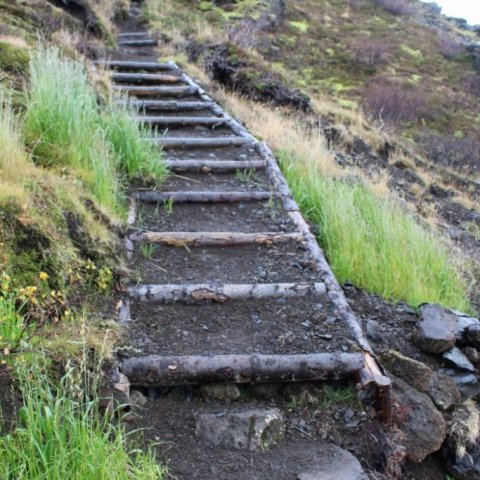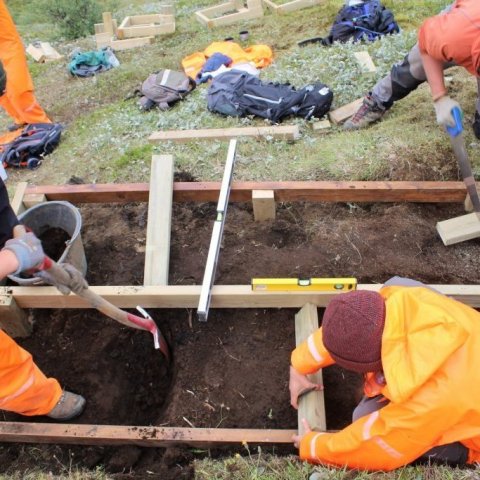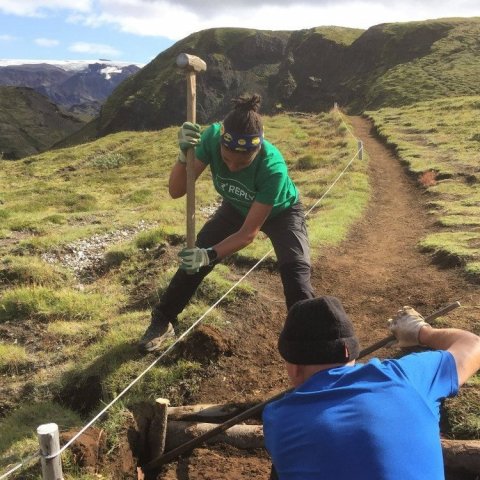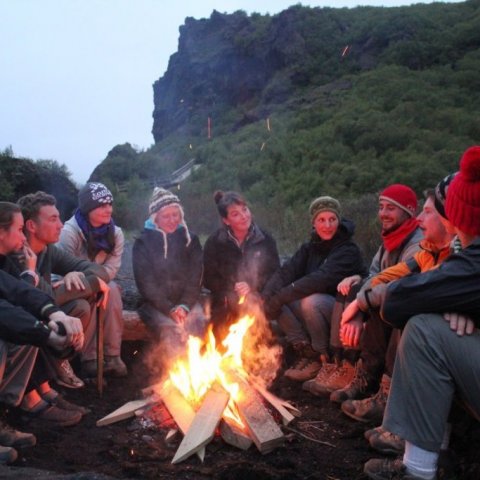Trail building with timber
24.02.2020
Trailteam.is 23 February 2020
Timber built trails have become one of the main features of Thórsmörk Trail Volunteers' maintenance work in Thórsmörk and Goðaland. Carefully built steps prevent erosion and make the trails more comfortable for hikers.
Although the volunteers do work with stone when it can be found close to the trails, there are many areas on the trail network where there is little natural building material available. Since the Thórsmörk volunteer programme began in 2012, the teams have been developing trail maintenance techniques using timber produced from the forests of south Iceland and these timber trails are now a common sight throughout the Thórsmörk area. During this time, several types of timber have been trialled, but the majority of this work has been done using Icelandic-grown Sitka spruce.
Where possible, new steps are built wider than the existing trail to help prevent erosion and the height of the steps is limited to approximately 15cm to make them comfortable to walk on. Low steps are particularly important for visitors carrying heavy backpacks. Flights of steps are usually built with regular spacing. Long timbers are used to make drains (waterbars) and these are added to each section to divert water from the steps and to help protect them (picture 2 below).
Timber sides can be added to help secure steps over bedrock areas and these help to prevent material from being washed out of the steps (picture 3 below). On freshly repaired sections, rye grass seed is added to stabilise the areas around the trails. This is fast growing but only grows for one to two seasons, helping to stop loose material being washed away. As the rye grass grows and then dies back, it allows time for the slower growing natural vegetation to re-establish itself beside the trails.
This summer, the trail building with timber continues as the teams move to new worksites in the nature reserves of Thórsmörk and Goðaland.
- More on Trailteam.is


